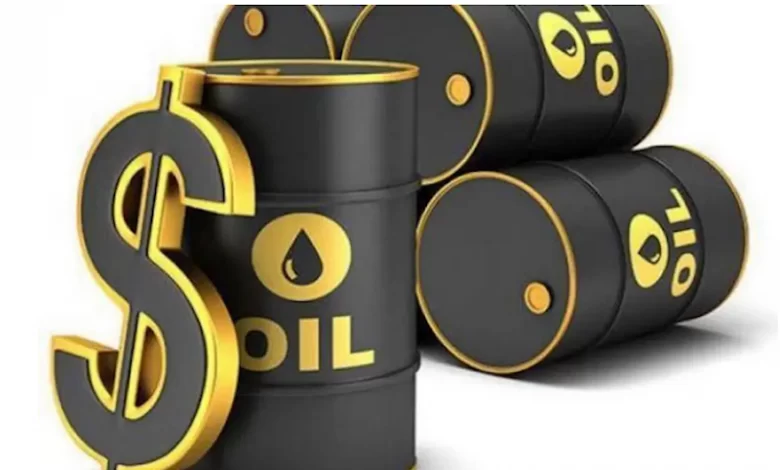
In analyzing the dynamics of the global crude market on Monday, September 18, at 5:14 AM (GMT+1) using data from Oil Price, it was observed that Brent crude remained steadfast at $94.30 per barrel.
During the preceding weekend, Brent experienced fluctuations within the range of $93 to $94 per barrel, illustrating a subtle market shift.
Concurrently, the West Texas Intermediate maintained a strong position above $90 per barrel, registering $91.28 early on Monday morning, underscoring stability in the market.
The recent surge in crude oil prices can be attributed to mounting concerns regarding a potential deficit in oil supply.
Key players in the oil market, including Saudi Arabia and Russia, have committed to sustaining production cuts throughout the entirety of 2023. Adding depth to this, insights from Reuters shed light on the bullish factors propelling the upward trajectory of the oil market.
CMC Markets analyst Tina Teng emphasized that China’s proactive stimulus policy, the resilient U.S. economic data, and the steadfast adherence to output cuts by OPEC+ collectively fuel this upward momentum.
It’s notable that China, after experiencing an economic slowdown that impacted oil demand, recently took a significant step.
China’s central bank announced an increase in lending capacity for households and businesses, a move expected to bolster oil demand.
Despite this, market investors remain vigilant for forthcoming data that can offer a comprehensive understanding of China’s economic landscape and its potential implications on oil demand.
Additionally, it’s crucial to highlight those initial concerns regarding an oil supply deficit sparked by Libya’s Storm Daniel, which tragically claimed the lives of over 11,000 people, have been addressed by authorities.
They affirm that oil production in the country remains uninterrupted despite the severe storm’s impact, the four crude export terminals that were initially shut for several days – Brega, Ras Lanuf, Es Sider, and Zueitina were reopened last week.
In its most recent monthly oil market report, the Organization of the Petroleum Exporting Countries (OPEC) provided insights into the oil demand outlook for 2024.
The report anticipates a substantial rise of 2.25 million barrels per day in global oil demand, underlining a rapid economic recovery in major economies.
This projection remains robust even amidst high-interest rates and persistent inflation. Notably, the report forecasts global GDP growth of 2.6% in 2024, further emphasizing the positive economic momentum that is anticipated to drive oil demand.
The Nigeria context
The surge in global crude oil prices poses a significant concern for Nigeria. Being an oil-exporting country without operational refineries, the country faces the reality of importing refined petroleum products at inflated costs.
This, inevitably, can exert pressure on the prices of petrol and diesel at the fuel stations.
The paradox lies in the fact that while the rise in global crude prices could potentially generate increased revenues for the country, the absence of functioning refineries inhibits the country from capitalizing on this financial gain.
The Nigerian populace has been apprised of government initiatives, channelled through the Ministry of Petroleum Resources, aimed at refurbishing local refineries, which could all be operational by 2024. The objective is to halt the importation of petroleum products.
However, a stark discrepancy persists between the capacity of these refineries and the burgeoning local demand for petroleum products. The demand consistently surpasses the output of these refineries.
Concurrently, the government and various energy stakeholders in the country are not extending the due support to modular refineries, as asserted by Momoh Oyarekhua, the Chairman of the Crude Oil Refineries Association of Nigeria (CORAN), in a July 2023 interview.
Mr. Oyarekhua emphasized that robust support from the government towards modular refineries could substantially mitigate various expenses. These would encompass the costs associated with shipping crude oil abroad for refining and importing the refined products.
Furthermore, expenses linked to clearing refined petroleum products at the terminal, port charges, and the involvement of intermediaries transporting products to Lome, from where operators then ship the petroleum products into Nigeria, could all be eradicated with the necessary backing for modular refineries.
This not only streamlines the process but also potentially results in cost savings and boosts efficiency in the petroleum supply chain.
Oyarekhua also said: “We have advocated that modular refineries need to buy crude oil in Naira because when we process crude, we will sell in the Nigerian domestic market and our income is in Naira, so, the feedstock should also be in Naira, so we do not overcrowd the forex market. If we have 40 modular refineries with 10,000 barrels per day (bpd) capacity, and we must go into the market to look for equivalent USD to pay for crude, where the average price is $100, we will require a minimum of $30 million monthly to procure crude. At the end of the day, in a year, we will require about 360 million to procure crude oil.”




